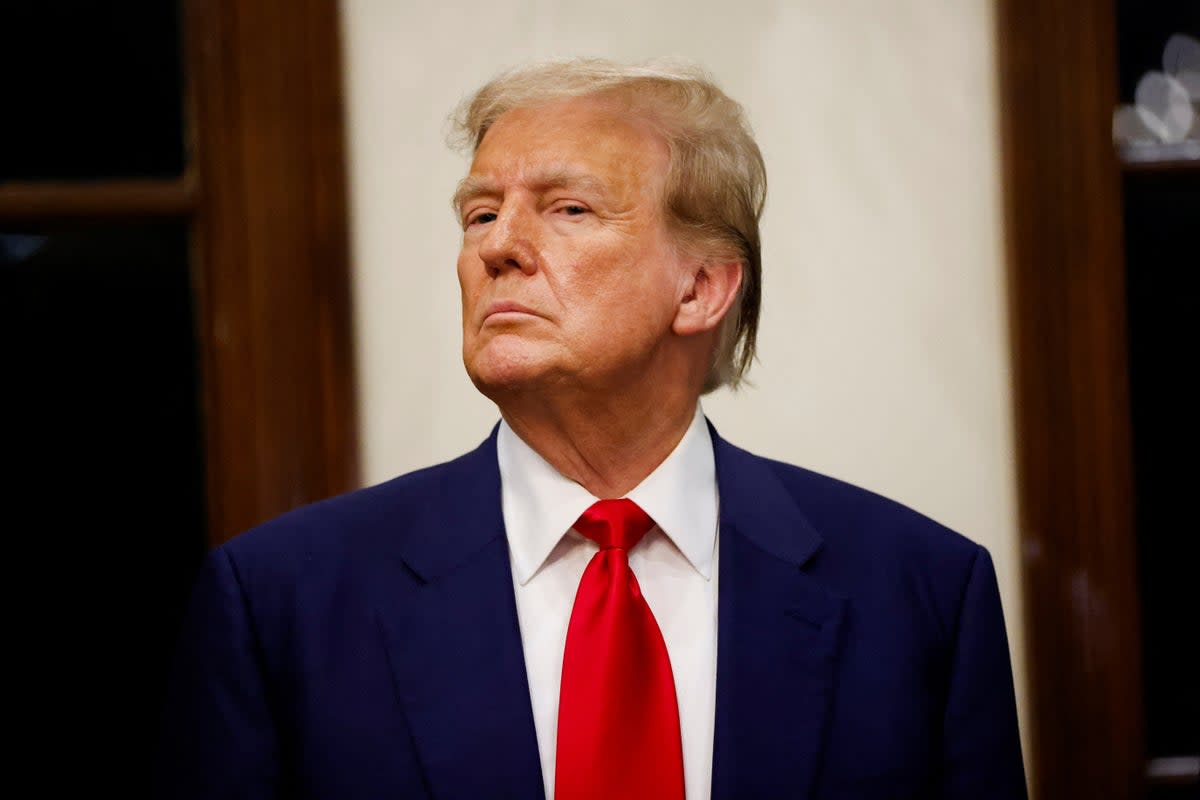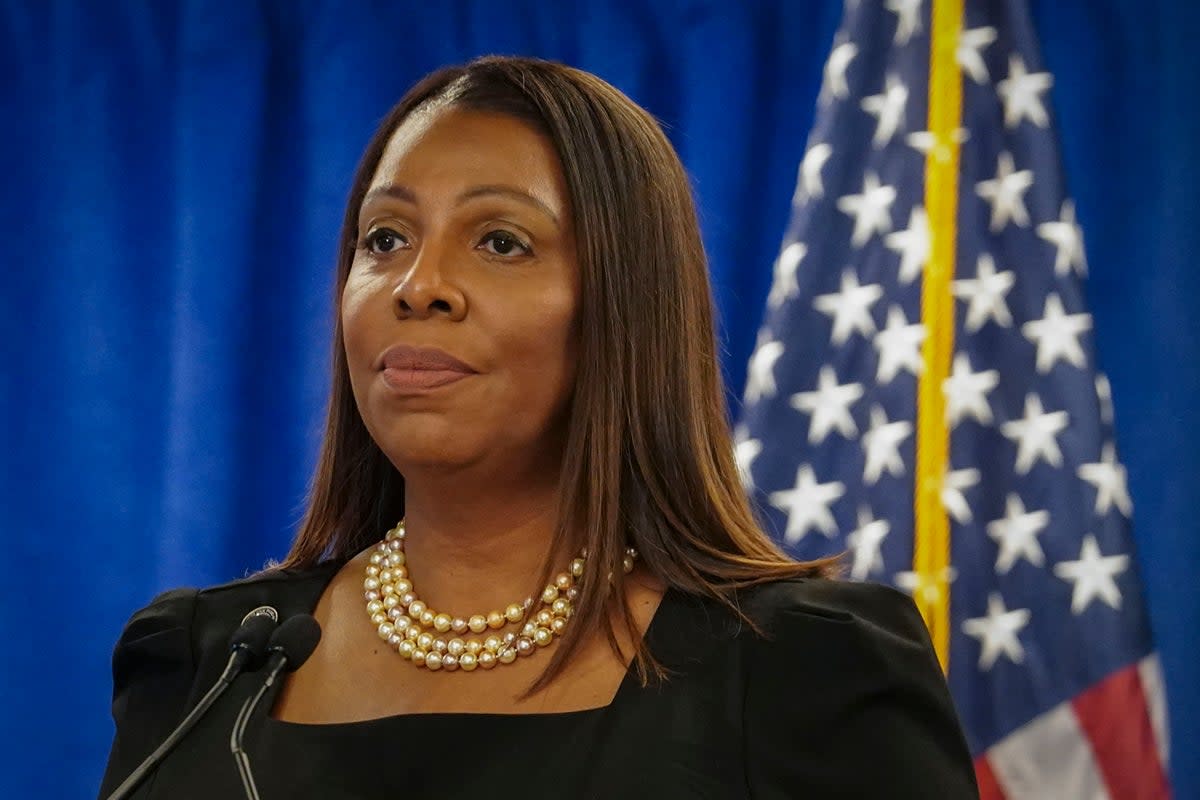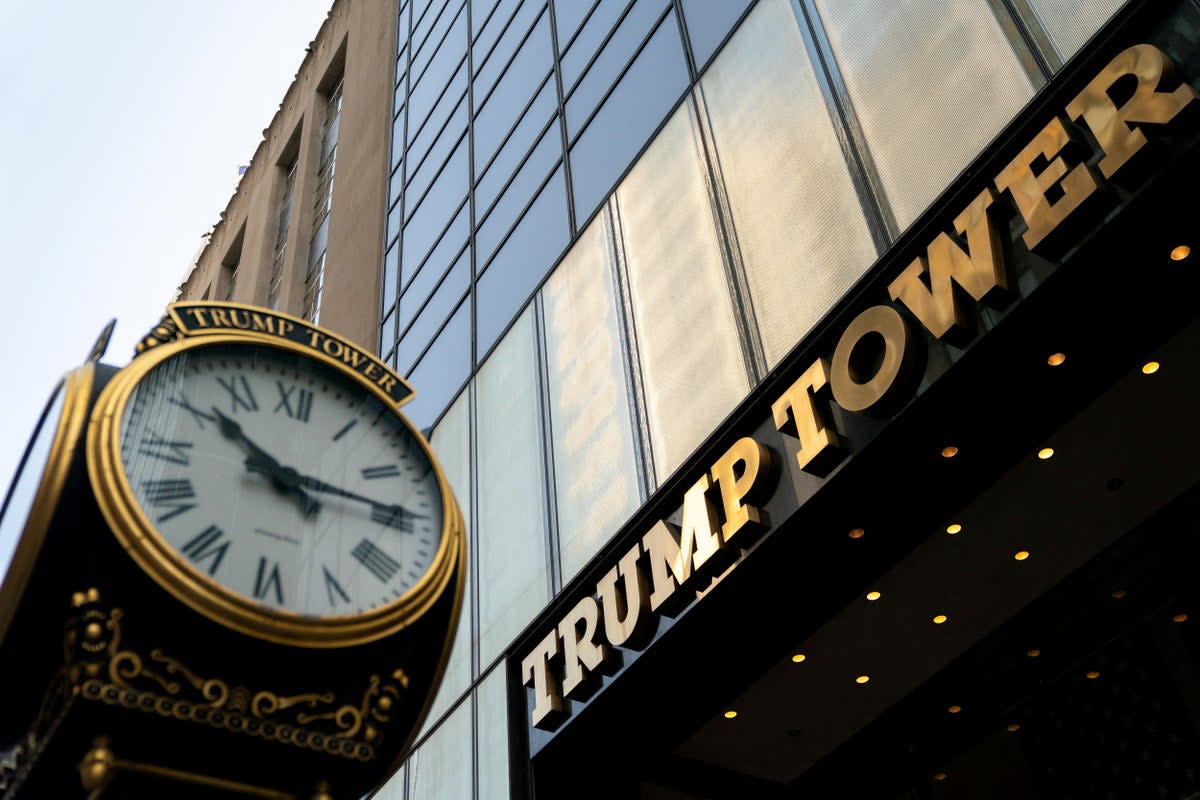Trump has been handed a lifeline hours before $464m fraud bond deadline. Here’s what you need to know
Donald Trump was handed an extraordinary lifeline as deadline day for the payment of his $464m fraud bond dawned, with a panel of state Appellate Division judges unexpectedly granting him a 10-day extension to pay just $175m of the total judgement.
Judge Arthur Engoron ruled last month that the Republican presidential candidate must pay $354m in fines and a further $110m plus in interest ($464m, all in) over a decade-long scheme where he inflated the value of Trump Organization assets in order to obtain favourable loans from banks and insurers.
As the interest ticked ever-upwards at 9 per cent or $120,000 a day, the exact total he owed as the deadline arrived was closer to $468.1m, with his lawyers arguing that he had been unable to find a bond company willing to stump up the cash.
Mr Trump has since pledged on Truth Social that he would “abide by the decision of the Appellate Division, and post either a bond, equivalent securities or cash”.
Should he still fail to do so in less than two weeks time, New York attorney general Letitia James could begin seizing the former president’s assets, including some of the most prized property in his real estate empire.
Here’s what could happen next.
What are Donald Trump’s options? Pay bond, appeal or bankruptcy
Mr Trump – who is also battling four criminal cases in Washington DC, New York, Georgia and Florida while simultaneously campaigning for the presidency, chewing up an estimated $230,000 per day in legal expenses – has been granted a considerable reprieve but could still struggle to rustle up $175m in just 10 days.
His first option remains finding a surety company willing to post the money on his behalf, for a fee, in order to cover a significant portion of the judgement in the event that he should he fail to win his pending appeal. Prior to Monday’s development, his attorneys had revealed that they had approached more than 30 companies – and been turned down by all of them, blaming the sheer size of the sum involved.
The presidential candidate was able to secure a $91.6m bond earlier this month to appeal the defamation verdict against him in the unrelated E Jean Carroll case through the Federal Insurance Company, a subsidiary of the Chubb Corporation, whose CEO was appointed to a trade advisory committee during the Trump administration. Support from another wealthy ally or group of allies would come in very handy indeed right about now.

Alternatively, Mr Trump could stump up the cash himself and pay off the now-discounted bond. He claimed on Truth Social on Sunday night that he does have the cash in his account – but that he is planning to use it for his presidential campaign instead.
The amount of his available cash on hand remains up for debate. He is likely to receive a $3bn windfall soon once his social media platform hits Wall Street, perhaps as soon as Monday, although he is prohibited from selling his interest in the venture for six months from it going public.
Mr Trump’s other options include filing for Chapter 11 bankruptcy, although that step would not rid him of debts accrued through fraud and definitively undermine his claims to be a billionaire businessman and therefore, potentially, his electoral appeal.
What are Letitia James’s options? Seize property or bank accounts
Should Mr Trump still come up short, Ms James has the authority to begin seizing his assets, including some of his properties, with a view to selling them on to make up the total owed.
The state attorney general had the power under New York to enforce the judgement as soon as it was issued in February but Mr Trump was granted an initial 30-day grace period, which has effectively now been extended to 40.

Should she seek to seize his accounts, the process will first involve her sending out restraining notices to banks and brokerage firms ordering the freezing of his accounts. She would also need a court order to be able to accesss the money.
Ms James could also seize his property, including his namesake Trump Tower.
Her office has already started taking steps toward recovering some of the former president’s assets. In filings dated 7 March, her office entered the judgement with the county clerk’s office in New York’s Westchester County – home to Mr Trump’s Seven Springs estate and his Trump National Golf Club Westchester. That development indicates that her office is gearing up to take possession of those properties should it become necessary.
What has each side said about the fraud case?
Mr Trump has repeatedly railed against Ms James and Judge Engoron on Truth Social, denying any wrongdoing and baselessly claiming the case against him is a “witch hunt” being orchestrated by his enemies.
In a rant on the eve of the bond deadline, he fumed in a post on his platform that: “I HAVE DONE NOTHING WRONG!”
“These Radical Left Lunatics and Communists ask me to pay a ridiculous and completely unheard of fine of over $450,000,000 only because they saw a similar amount in my bank account. I had intended to use much of that hard earned money on running for President. They don’t want me to do that – ELECTION INTERFERENCE!” he said.

For her part, Ms James has said she is more than happy to begin repossessing Mr Trump’s properties.
“If he does not have funds to pay off the judgement, then we will seek judgement enforcement mechanisms in court and we will ask the judge to seize his assets,” she told ABC News recently.
“We are prepared to make sure that the judgement is paid to New Yorkers, and yes, I look at 40 Wall Street each and every day.”
How did Trump end up here?
Ms James first brought her civil case against the Trump Organization in September 2022, suing Donald Trump, his three oldest children Donald Trump Jr, Eric Trump and Ivanka Trump (who was later excluded), former chief financial officer Allen Weisselberg, former controller Jeffrey McConney and ten related companies alleging that they had engaged in financial fraud by habitually misrepresenting their property values to potential lenders and tax officials for monetary gain.
Judge Engoron duly presided over an 11-week jury trial between October and December after which the defendants were found liable for fraud and ordered to disgorge their ill-gotten gains.
The judge issued a 92-page ruling on 16 February siding with Ms James in which he found that the “defendants failed to accept responsibility or to impose internal controls to prevent future recurrences” and accused them of having “submitted blatantly false financial data” so as to “borrow more and at lower rates”.
In addition to ordering the massive repayment, he barred Mr Trump from running a business in New York for three years and his sons for two years.
